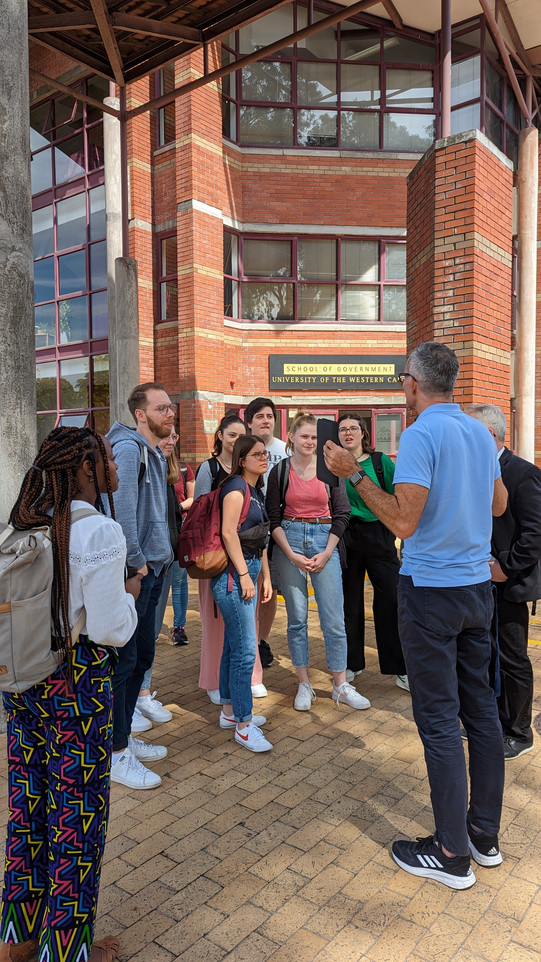ICOLMA - Project update

The research project ICOLMA(Impact of COVID-19 on livelihoods, mobility and accessibility of marginalized groups) investigates and compares the impact of the COVID-19 pandemic on the mobility, accessibility and livelihoods of marginalized groups in the Ruhr area (Germany), in Cape Town (South Africa) and in São Paulo (Brazil). The team of researchers from IRPUD (Tanja Schnittfinke and Dr. Wolfgang Scholz) and IPS (Prof. Dr. Sophie Schramm and Dorcas Nthoki Nyamai) from TU Dortmund University traveled to Cape Town for two weeks of fieldwork and a consortium workshop with colleagues from the University of Cape Town (UCT), University of Western Cape (UWC) and Universidade Federal do ABC. They were accompanied by their supervised advanced student project F03, in which Bachelor's students work on a corresponding question for two semesters.
Interviews with experts and discussions with UCT researchers deepened their understanding and provided new insights into how life in Cape Town changed during the pandemic, how these effects can still be seen today and what challenges exist to counteract them through resilient urban development. The two-day workshop provided a good opportunity to present the progress of the individual partners' work and to discuss the further course of research. With the participation of the student project F03, the results of the pre-test of the joint household surveys in Dortmund and Cape Town among marginalized groups were brought together. The aim is to understand the changing role of mobility in times of the pandemic on the livelihoods of marginalized groups and the role of virtual access in this. Now that a final version of the survey has been agreed, household surveys will be conducted with the target groups over the next few weeks.
On the basis of these, measures will be recommended for more equitable accessibility and accessibility of services and offers to support and improve the resilience of marginalized groups in the event of another pandemic. These measures will then be discussed and disseminated with a broader public in the research project.





